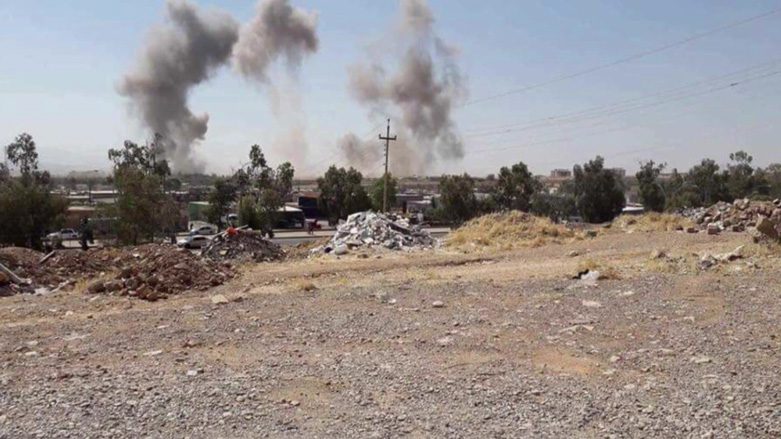UPDATED: Iran Guards claims responsibility for bombardment in Kurdistan Region
On Saturday morning, Iranian missiles targeted the headquarters of the KDP-I and the Democratic Party of the Iranian Kurdistan (PDKI), as well as an Iranian Kurdish refugee camp in the Erbil Province’s Koya.

ERBIL (Kurdistan 24) – Iran’s Islamic Revolutionary Guard Corps (IRGC) on Sunday claimed responsibility for the missile attacks on headquarters of Iranian Kurdish (Rojhilati) opposition groups in the Kurdistan Region’s town of Koya.
On Saturday morning, Iranian missiles targeted the headquarters of the Kurdistan Democratic Party - Iran (KDP-I) and the Democratic Party of the Iranian Kurdistan (PDKI), as well as an Iranian Kurdish refugee camp in the Erbil Province’s Koya.
In a statement published a day after the incident, the IRGC asserted the opposition groups have led to “widespread insecurity” in Rojhilati provinces and have deprived locals of “safety and peace.”
The attack was carried out using “seven short-range surface-to-surface missiles,” the statement added, without mentioning from where the Iranian army had launched its missiles.
Following the statement, the IRGC gave drone footage of the attack to state-owned Channel One, showing the moment one of the missiles—revealed by Tasnim to be of the Fateh 110 type—struck the headquarters.
Iranian media releases footage of strikes hitting Iranian Kurdish opposition groups' headquarters in the Kurdistan Region.https://t.co/trRT4moBi7#TwitterKurds #Iran #Iraq pic.twitter.com/Jrt5CQ9VIO
— Kurdistan 24 English (@K24English) September 9, 2018
According to KDP-I’s statement, the bombardment ‘martyred’ 14 members of the two parties and injured 40 more. The Secretary of KDP-I, Mustafa Mawludi, and his predecessor, Khalid Azizi, were also among those wounded during the attack.
It is the largest attack on the KDP-I’s headquarters since 1996. The party split from PDKI in 2006 after an internal dispute.
The two parties reignited a conflict with the Iranian government in June 2016, 20 years after laying down their weapons to prevent jeopardizing Kurdish gains made in northern Iraq.
Following Saturday’s bombardment, both the Kurdistan Regional Government (KRG) and Kurdistan Parliament condemned the Iranian attack and called on Iranian Kurdish groups to avoid using the Kurdistan Region’s soil to attack neighboring states.
Editing by Nadia Riva